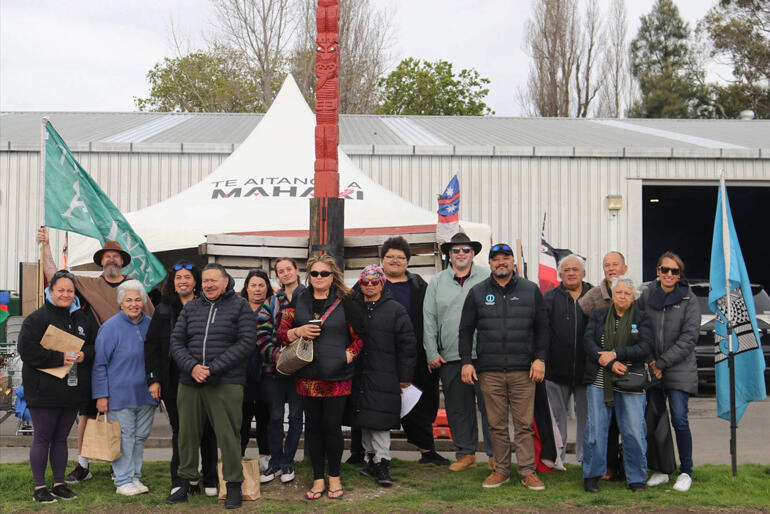
The first year of the Te Takawai Christian Diploma concluded in Gisborne this October 10 -12 for Te Rau Theological College, gathering students from Te Tairāwhiti and guest students from Te Waipounamu for their final class, a celebratory meal, and a Eucharist service shared with the local community.
The weekend marked not only an academic milestone for Tikanga Māori, but the fruition of years of discernment toward a unique educational model grounded in mātauranga Mihinare, mātauranga Māori, and mātauranga Moana.
Nearly sixty students completed the second semester of this renewed Diploma in Christian Studies, offered through Hoani Tapu -St John's College in partnership with the Te Takawai network (Te Hui Amorangi ki Te Tairāwhiti, Te Hui Amorangi ki Te Waipounamu, Te Hui Amorangi ki Te Upoko o Te Ika, and Te Hui Amorangi ki Te Manawa o Te Wheke) and their delivery sites.
The programme’s distinctive model enables students to study theology where they live and minister, discerning how God’s life is at work within their own cultural and spiritual landscapes. It is theology returning home, finding its language again in the stories, prayers, and relationships of the people.
Semester two centred on two core papers: Te Whakapono (The Church’s Story), weaving haerenga and wānanga methods to bring local histories and theological reflection into dialogue; and Te Kawenata Hou (The New Testament), introducing exegetical and interpretive skills that allow scripture to speak afresh in our time.
Rev Dr Wayne Te Kaawa led the final teaching weekend at the Eastern Institute of Technology, exploring whakapapa in theology—inviting students to name those who had formed their faith and shaped their call to ministry.
Students from Te Waipounamu shared a waiata they had composed, inspired by an earlier haerenga (pilgrimage) along the West Coast of the South Island. Conversations unfolded about the lineage of leadership in the Māori Church— from Bishop Wiremu Panapa and Sir Kingi Ihaka to today’s emerging ministers — revealing how formation can be communal and intergenerational.
At the celebratory dinner, Archdeacon Susan Wallace reflected on how this diploma represented a long-awaited dream come true. For many years, she said, they had sought meaningful partnerships with educational institutions, but few imagined that such formation could be realised through partnership with the provincial theological college itself.
Archbishop Don Tamihere spoke of theological formation as more than an academic exercise, but as a way of learning to see Christ in others.
The weekend closed with a Eucharist service at Toko Toru Tapu Church, a fitting symbol of shared learning and worship. Provisional results for Semester two are outstanding: a 100% pass rate and 88.1% retention across all sites, signs of deep engagement and of theology not only learned, but lived.
This story was first published by Te Pīhopatanga o Aotearoa

















Comments
Log in or create a user account to comment.